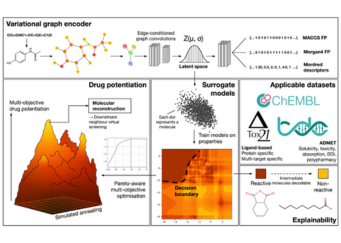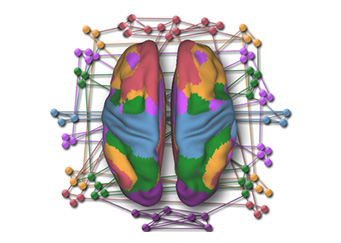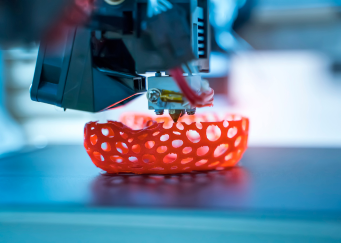A*STAR researchers leverage supercomputing to predict immunotherapy outcomes in order to better select treatments best suited for patients.
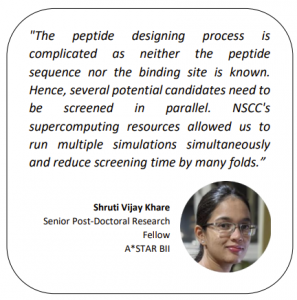 Immunotherapy is a breakthrough cancer treatment that relies on activating the immune system to treat cancer and has been quickly developing over the past decade. However, the success rate remains low (about 20% to 30%) and predicting immunotherapy outcomes has been challenging.
Immunotherapy is a breakthrough cancer treatment that relies on activating the immune system to treat cancer and has been quickly developing over the past decade. However, the success rate remains low (about 20% to 30%) and predicting immunotherapy outcomes has been challenging.
The presence of infiltrating immune cells, such as cytotoxic T cells, in the tumour microenvironment has been linked to improved immunotherapy success. The goal of the CITI (Cancer ImmunoTherapy Imaging) Programme, led by a research team at the Duke-NUS Medical School, is to develop novel peptide-based imaging probes which will bind to proteins on the T cell surface. Such imaging probes, when tagged with a radioisotope can be combined with PET imaging to non-invasively detect the presence of T cells in the tumour. This can aid physicians in predicting immunotherapy outcomes and selecting the appropriate treatments that will best suit patients.
A team of researchers from A*STAR’s Bioinformatics Institute (BII) is collaborating with the CITI Programme to design and refine lead peptides. Several peptides have been identified so far and are in various stages of in vitro validation and in vivo testing.
“Our project involves designing peptide candidates using known binders of target proteins and structural database mining where the identified candidates are screened in silico using molecular dynamics (MD) simulations,” explained Dr Shruti Vijay Khare, a Senior Post-Doctoral Research Fellow at A*STAR’s BII. “The supercomputer resources offered by NSCC are crucial for parallel screening of several peptide candidates as multiple simulations can be run simultaneously. This allows high throughput screening and speeds up the design process.” The ASPIRE1 supercomputer cluster was used to perform MD simulations using GPUs.
The eventual goal for the research team is to translate the research on these radiopharmaceutical imaging probes into viable applications for clinical settings and for the commercial market.
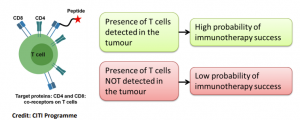
To find out more about the NSCC’s HPC resources and how you can tap on them, please contact [email protected].
NSCC NewsBytes May 2022
Other Case Studies
Advancing Drug Discovery Research using NSCC HPC resources
Researchers from Nanyang Technological University (NTU) are applying variational graph encoders as an effective generalist algorithm in computer-aided drug design (CADD)....
Gaining Deeper Insights into Mental Disorders through Brain Imaging and High-Performance Computing
Researchers from NUS are leveraging supercomputing to develop better strategies for prevention and treatment to mitigate the impact of mental illness. The human brain is a marvel...
Using Digital Twin Technology to Optimise the Industrial 3D Printing Process
Researchers from the Institute of High-Performance Computing (IHPC) are utilizing supercomputers to create a digital twin that furnishes users with comprehensive information...
